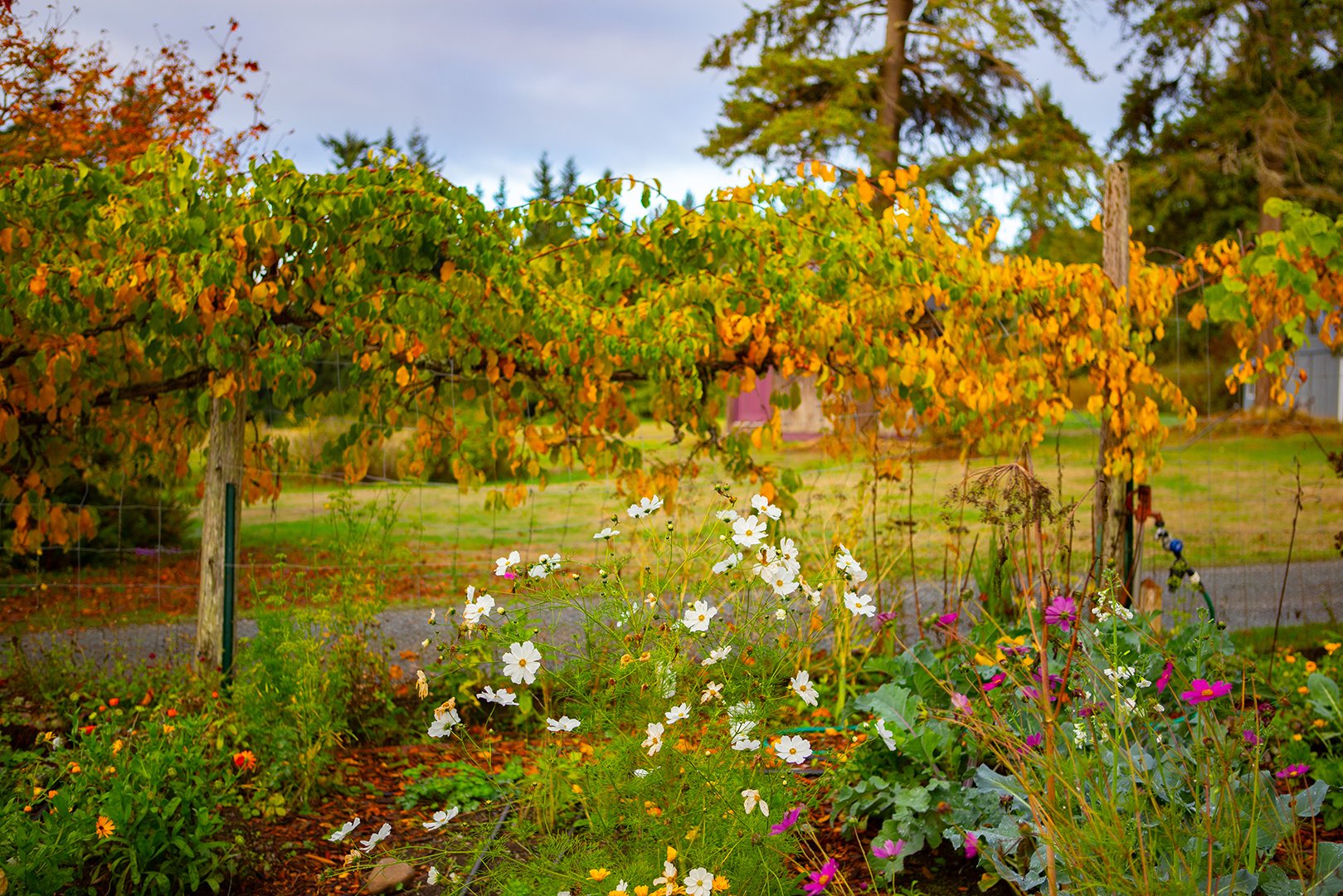From the Farmhouse Table: October 2024
This, too, is Protest
You have probably read about new laws that prohibit women from speaking, singing, reciting poetry, reading aloud, or even laughing outside the home in Afghanistan.
These decrees are among a slew of increasingly restrictive laws that limit women’s engaged participation in life since the Taliban takeover three years ago. Laws that require women be accompanied by a male guardian in public. Laws that outlaw women looking at men not related to them by marriage or blood.
I think about how Afghan women are surviving. I’ve been seeking out stories of their rebellion. The women singing songs of protest online. The network of Afghan women running secret schools because education has been banned after the sixth grade. This, despite the promise of beatings, incarceration and even the threat of death by stoning.
I’m done taking things for granted.
Last month, Hedgebrook hosted its third Writers Conference, at Hugo House in Seattle. Three dozen writers from around the country convened for three days of learning from a trio of illustrious Hedgebrook alumnae: Carmen Maria Machado, T Kira Māhealani Madden and Dionne Ford. The in-person conference was sold-out and kicked off with Great Minds: On Ghosts, Ancestors, and the Nostalgia Machine, an evening of performances by Bushwick Book Club Seattle and Seattle Arts & Lectures' Youth Poet Laureate, Janae Lu, followed by a conversation with Carmen, T Kira and Dionne.
Later that weekend, Amber Flame and I had the honor of participating in the inaugural Jaipur Literary Festival in Seattle. I moderated a conversation titled “Blame It on Eve” with three badass authors: Academic and novelist Sonora Jha (a Hedgebrook alum and former Board member), researcher and scholar Cat Bohannon and author and Festival Co-Director Namita Gokhale. More than 6,700 miles from the capital Kabul, we focused on the female body, which bears the burden of scrutiny and restriction not just in Afghanistan but across the world’s gendered dynamics.
This, too, is protest.
At Hedgebrook, it manifests as amplifying the voices of women. Making space for women to write and sleep and connect and be cared for as they caretake for others. Ensuring women of color feel at home on the land, under the forest canopy and in Hedgebrook’s wider community.
We refuse to presume that women’s autonomy is fixed, here or abroad. But we can acknowledge our rights, fight to protect them, and overcome their restrictions.
And we can find joy in what women create.
Join us in December, when we honor over 25 years of celebrating and supporting women-identified playwrights by amplifying their voices in our first-ever Playwrights Alumnae Showcase. We will come together to feature the work of our playwriting alumnae in the various stages of creation, from work-in-progress through development, to performance and expansion beyond the theater. An opportunity for audiences to see inside the creative process of playwriting and then continue the conversation while getting a taste of Hedgebrook with refreshments provided by our chefs. Built on the foundations of our historical Playwrights Festival, the showcase will take place over two days in two locations (Whidbey Island and Seattle).
Save the dates (and join us on Whidbey Island on Dec. 8, and in Seattle on Dec. 9).
And if you can, make a gift today to support our writers in residence. Spaces that offer what Hedgebrook offers should be commonplace because women deserve nothing less. But they are not. Your support helps us provide women-identified writers with life-changing residencies on the land.
— Kimberly A. C. Wilson, Executive Director, Hedgebrook

